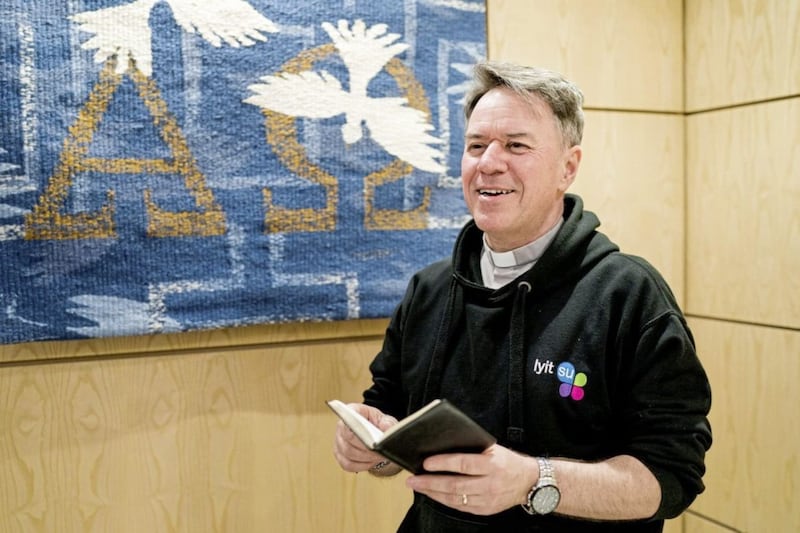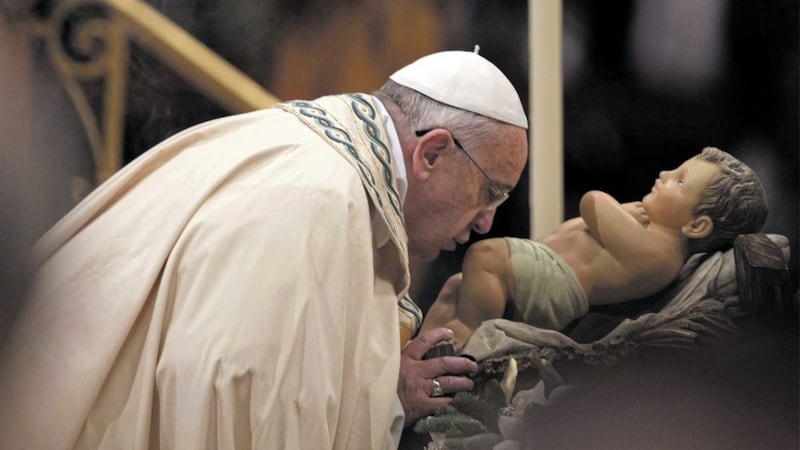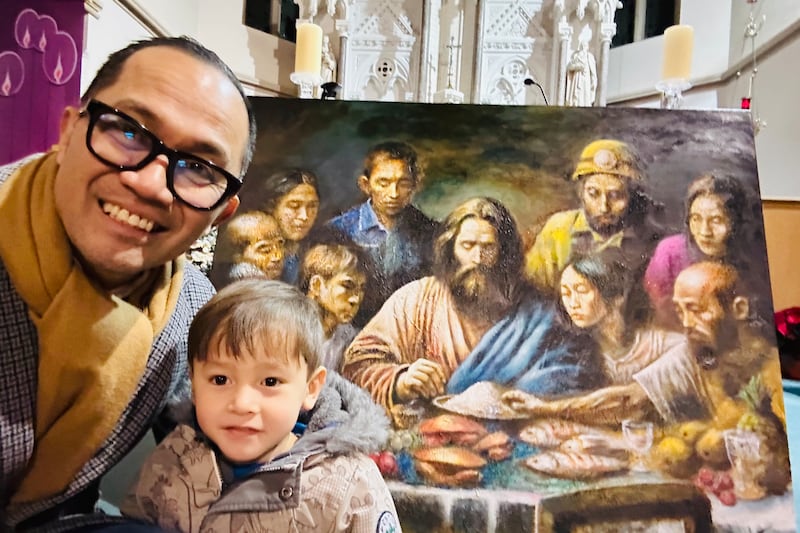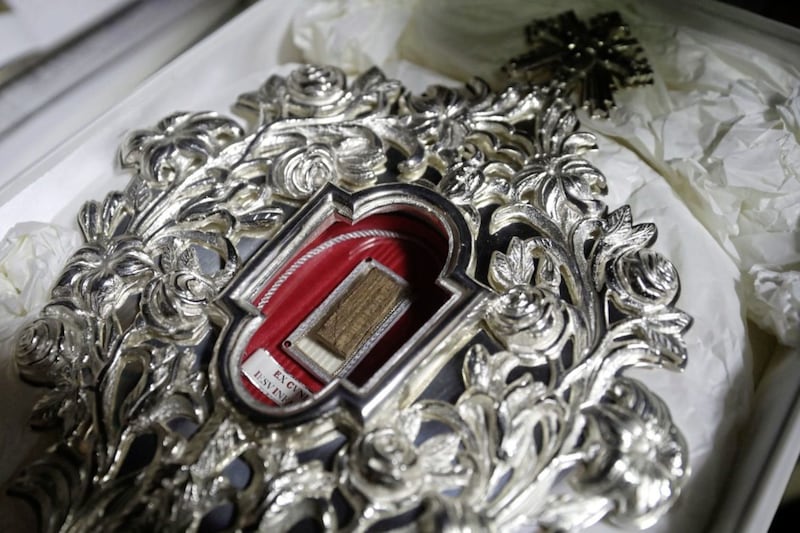
"ALL you need is love..."
So sang the Beatles in 1967 and over the last 52 years many people seem to be believing that message.
All we need is love; if everyone was governed by love wouldn't everything work out all right? If everyone just loved everyone else we would tolerate all the diversity, there would be peace and everything would be nice.
Initially it seems like a really attractive idea.
My first minister in Agnes Street Presbyterian Church in Belfast was a Scotsman, the Reverend Donald Gillies.
I was present on the day when, by then long-retired, he gave what would be his last address to the General Assembly.
"Imagine a young man trying to impress his girlfriend," he said.
"They're both standing on a pier. 'This is how much I love you,' the young man cries and jumps into the water.
"Very impressive perhaps, but would it not be so much more useful if the young woman were drowning and he dived in to save her?"
"The question," asked Reverend Gillies, "is did Jesus come into the world to merely tell us God loves us or to save us from our sins?"
My old clergyman got a standing ovation for his speech that day but that's not really the point.
Listen again to his question: "Did the Lord Jesus come into the world to merely tell us God loves us or to save us from our sins?"
If we read Matthew 1, we see that the angel gives the answer in the instruction to Joseph: "You are to give him the name Jesus because he will save his people from their sins."
The name Jesus, or Yeshua, comes from a Hebrew root word meaning 'Rescuer'.
The Son of God came into the world not just to inaugurate God's Kingdom, not just to tell us God loves us and not only to demonstrate it with all those dramatic acts of generous compassion, but, very specifically, to save us from our sins.
People are inclined to sneer at sin. They make a joke of it. But it must actually be deadly serious if we need rescued from it.
The Bible teaches sin is a profound problem for human beings.
It makes us guilty. Nothing disturbs our mental health and wellbeing quite like a guilty conscience.
The Son of God came into the world not just to inaugurate God's Kingdom but, very specifically, to save us from our sins
Consider Shakespeare's Lady Macbeth - unable to sleep, constantly scrubbing her hands, unable to erase the memory of what she committed.
More, if someone has been convicted of breaking the law they have a criminal record.
It may have been some time ago and they may regret their actions but when the records are checked they may still have difficulty getting a job or a bank loan. Our choices bring consequences.
The Bible says we have all sinned against God, all disobeyed His commands and heaven holds a record of it all.
We can temporarily suppress our conscience, argue it doesn't matter, practise love to the best of our ability but none of these remove the guilty verdict hanging over us.
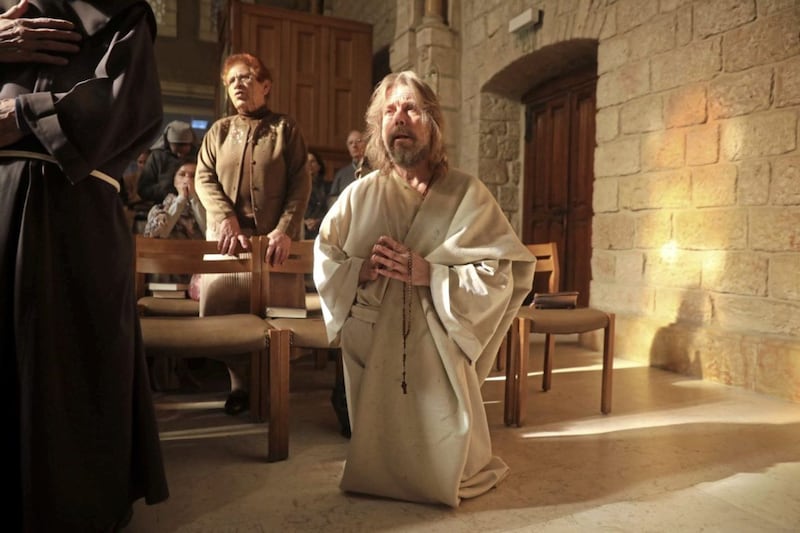
It doesn't end there. Sooner or later sin brings a penalty.
You'll sometimes hear people express exasperation when a court hands down what seems a lenient sentence - "They're getting away with murder" - but we perhaps console ourselves with the thought that wicked people who seem to get off lightly will one day have to face their maker for judgement.
But this is where it gets uncomfortable, because we will all be held accountable before the judgement seat of God.
Jesus is the one in the Bible who, more than any other, speaks of a day of judgement when God will pronounce his verdict on every human individual.
Some will be welcomed into heavenly reward, others will be shut out from God's grace and blessing forever.
Try and imagine for a moment the horror of existing, fully conscious, in a place void of God's goodness and mercy.
God the Son became one of us, Immanuel, part of his creation. He allowed himself to be made vulnerable, a baby in the womb
No light. No sunshine or rain, no harvest, no hope, no relief from divine retribution. Just endless suffering and regret.
Perhaps Jesus spoke of hell the most because he came to rescue us from it.
Sin, as it exercises its binding power over us, is clearly a deadly problem for human beings.
Unchecked, it becomes compulsive, obsessive. We get addicted to it. We become habitual sinners, it becomes our daily practice, our way of life. We become confined and restricted by it.
It rules the way we think, speak, act. Like cancer, it spreads, slowly infecting everything.
But amid all this, there is good news: "Call Him Jesus - the rescuer, the deliverer - for he will save people from their sins."
How? How can we be saved from such an insidious, deep-rooted enemy? Observe here not just the power of God but the wonderful and really quite beautiful way in which He provides for our salvation.
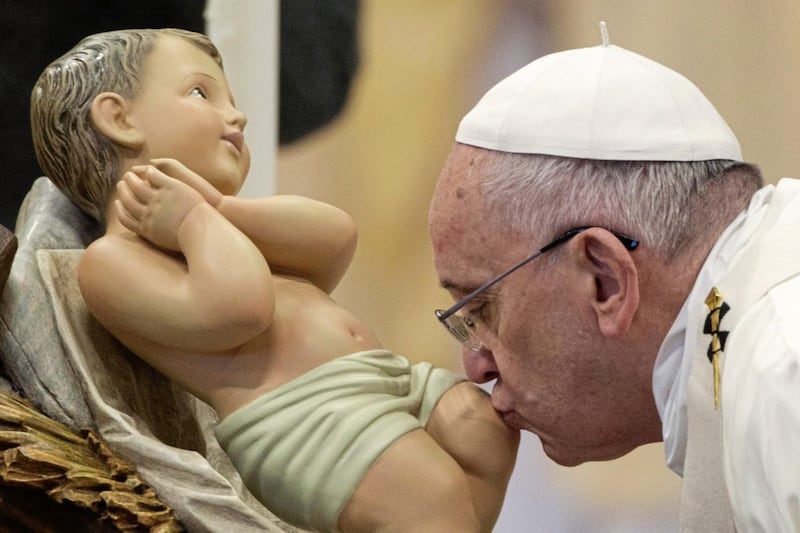
God the Son became one of us. "Immanuel" - God with us, beside us, among us.
The Lord, the eternal creator, became part of his creation. He allowed himself to be made vulnerable, a baby in the womb, a boy in a small town, a young man tempted by the devil, a human being who could feel disappointment, pain and rejection. He made his home here among us, such was his love.
And there's more. On the cross Jesus took on himself our guilty record and paid the penalty we deserve, decisively breaking the binding power of sin in our lives. He willingly gave his life to save ours.
God was with us that we might be with him. The Lord offers to save us that we may be reconciled to our maker and judge and even call him our "Father in heaven".
The cross was in ways hideous and cruel but our master went there willingly, lovingly, to save us from our sins.
Think again of that young couple on the pier, only now she's fallen in the sea.
That's a fair picture of the human race, drowning in a sinful chaos of our own proud making.
Are we happy to perish, or are we willing to be rescued?
Rev Andrew Watson is minister of the Presbyterian congregations in Dunfanaghy and Carrigart in Co Donegal. He is a chaplain at Letterkenny Institute of Technology and blogs at wordsurfers.com
